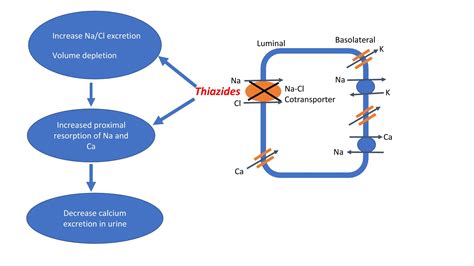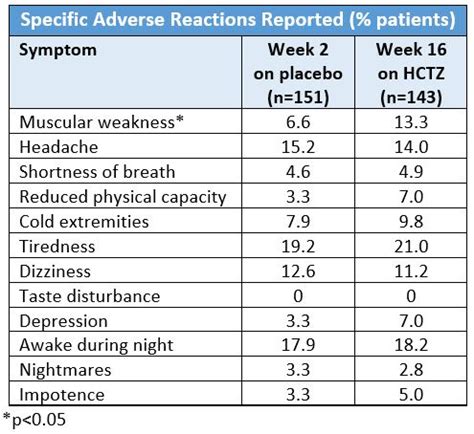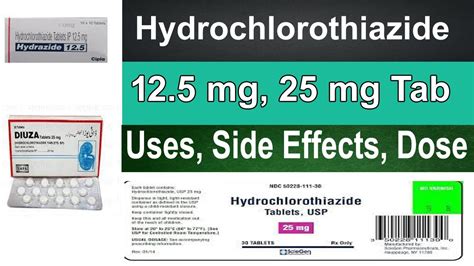Intro
Discover HCTZ uses and benefits, including treating hypertension, edema, and heart failure, with its diuretic properties, reducing fluid retention and blood pressure, while exploring its effects on potassium levels and potential interactions with other medications.
Hydrochlorothiazide, commonly referred to as HCTZ, is a diuretic medication that has been widely used for decades to treat various health conditions. Its primary function is to help the body get rid of excess fluid and salt by increasing urine production. This process can help alleviate symptoms associated with conditions such as high blood pressure, edema, and kidney disease. The importance of understanding HCTZ uses and benefits cannot be overstated, as it is a medication that can significantly impact an individual's quality of life.
The role of HCTZ in managing hypertension, or high blood pressure, is particularly noteworthy. Hypertension is a condition that affects millions of people worldwide and can lead to severe complications, including heart disease, stroke, and kidney failure, if left uncontrolled. By helping to reduce blood pressure, HCTZ plays a critical role in preventing these complications. Furthermore, its effectiveness in treating edema, which is the swelling caused by excess fluid trapped in the body's tissues, makes it a valuable treatment option for individuals suffering from this condition.
HCTZ is also used in the management of other health issues, such as nephrotic syndrome, a kidney disorder that causes the kidneys to excrete large amounts of protein in the urine, leading to severe swelling. The versatility of HCTZ in addressing a range of health concerns underscores its significance in the field of medicine. As research continues to uncover the full spectrum of HCTZ's uses and benefits, it is essential for healthcare professionals and patients alike to stay informed about the latest developments and guidelines regarding its use.
HCTZ Mechanism of Action

HCTZ Uses

Benefits of HCTZ
The benefits of HCTZ are multifaceted, offering relief from symptoms and improving the quality of life for individuals with various health conditions. Some key benefits include: - **Effective Blood Pressure Control**: HCTZ has been shown to be effective in lowering blood pressure, which can prevent complications associated with hypertension. - **Relief from Edema**: By reducing fluid retention, HCTZ provides significant relief from swelling and discomfort associated with edema. - **Protection of Kidney Function**: In patients with kidney disease, HCTZ can help reduce the strain on the kidneys by managing fluid and electrolyte balance.HCTZ Side Effects and Interactions

HCTZ Dosage and Administration

Guidelines for Use
For optimal use of HCTZ, patients should: - **Follow the Prescribed Dosage**: Adhering to the recommended dosage is crucial for achieving therapeutic effects while minimizing side effects. - **Monitor Blood Pressure and Electrolyte Levels**: Regular monitoring can help identify any potential issues early on, allowing for timely adjustments to the treatment plan. - **Stay Hydrated**: While HCTZ increases urine production, it is essential to drink enough water to prevent dehydration.HCTZ and Pregnancy

HCTZ and Breastfeeding

Conclusion and Future Directions

We invite you to share your thoughts and experiences with HCTZ in the comments below. Whether you are a healthcare professional or someone who has been prescribed this medication, your insights can help others better understand its role in managing various health conditions. Additionally, if you found this article informative and helpful, please consider sharing it with others who might benefit from this information.
What is the primary use of HCTZ?
+HCTZ is primarily used to treat hypertension (high blood pressure) and edema (swelling caused by excess fluid retention) in the body.
How does HCTZ work?
+HCTZ works by inhibiting the reabsorption of sodium and chloride in the kidneys, leading to increased urine production and a reduction in fluid volume in the bloodstream.
What are common side effects of HCTZ?
+Common side effects include increased urination, dizziness, lightheadedness, and electrolyte imbalance, particularly low levels of potassium.
Can HCTZ be used during pregnancy or breastfeeding?
+HCTZ can be used during pregnancy and breastfeeding under certain conditions and with careful monitoring by a healthcare provider, due to potential risks to the fetus or baby.
How should HCTZ be taken?
+HCTZ should be taken as directed by a healthcare provider, typically once a day, and it is essential to follow the prescribed dosage to achieve therapeutic effects and minimize side effects.
